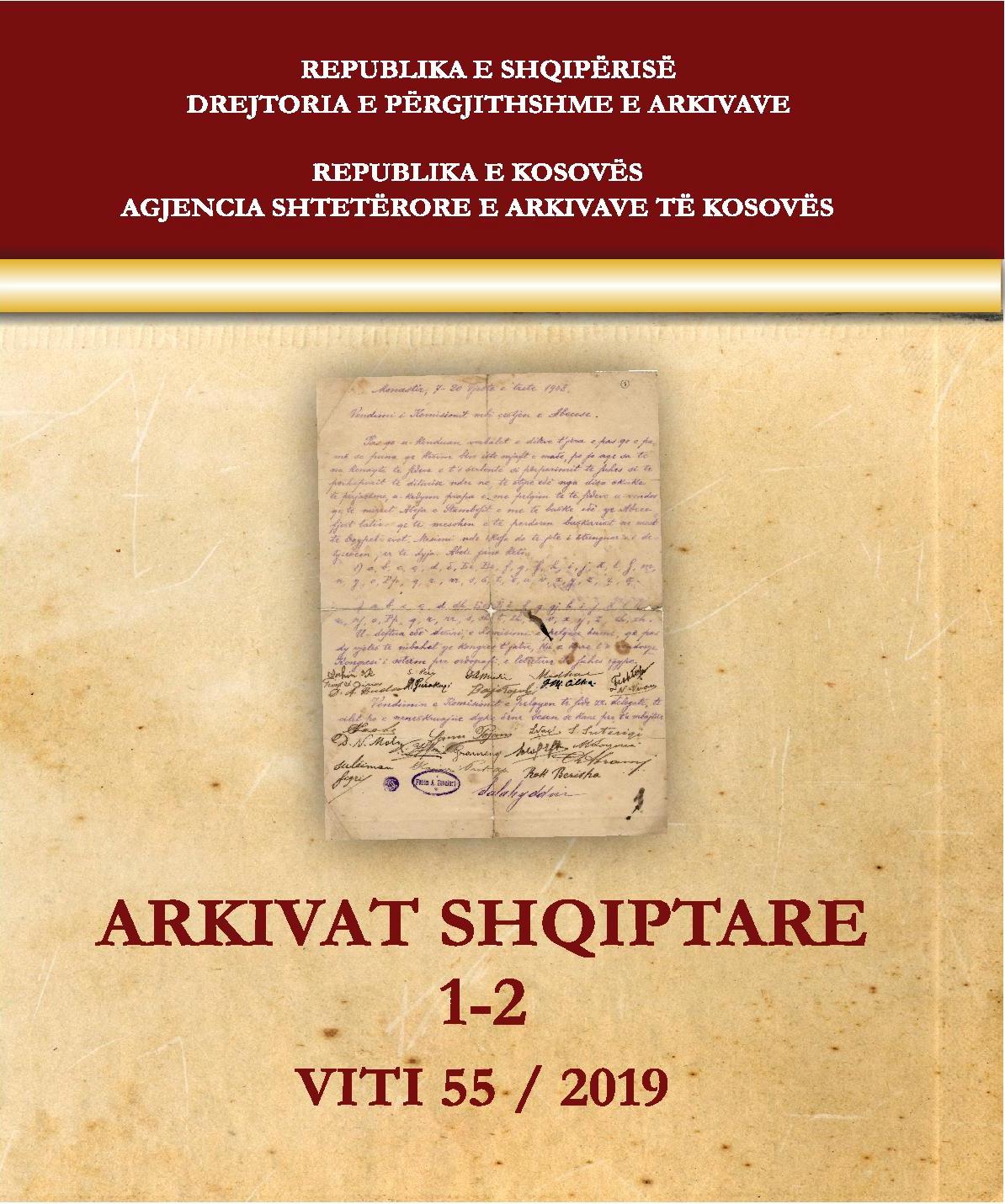Gjetja, komunikimi dhe ruajtja e informatave në institucionet arkivore
Finding, communicating and storing information in archival institutions
Author(s): Jusuf OsmaniSubject(s): Archiving, Cataloguing, Classification, Preservation
Published by: Drejtoria e Përgjithshme e Arkivave e Republikës së Shqipërisë; Agjencia Shtetërore e Arkivave të Kosovës
Keywords: document;archive; document tracking; metadata; access;access to archival records; standards;ethic code;
Summary/Abstract: The archives with the documentation they possess are contributing to the writing of history. How the people of a country document and preserve this history will be essential for future studies. The role of archives is crucial in fulfilling this mission. They must build and preserve the memory of the people for future generations. The many researchers in the archives that are growing day by day need access to information. Finding and exchanging Information is one of the essential elements in the digital world in which we live. In the last decades of this century we are dealing with the flood of information created and contained in classical archival documents, especially electronic ones. This is making it difficult to find them. In this regard, the archivists of the world, through the International Council of Archives, have adopted several standards for the description, use, retrieval, access, other publication of archival documents. Archives should be included in these work processes which are also in their domain. Numerous documents make it difficult to find them. Information which cannot be found is practically useless. Also, if we spend a lot of time and effort in finding any information, then it also loses in its value. All documents and information forms (video, paper documents, electronic, audio-visual, etc.) are not useful if they cannot be found and reused. The value of getting data fast means a lot. Because fast data retrieval is one of the essential goals of archiving, namely today's contemporary informatics. Communication is the exchange of information and ideas. Successful communication means that the information has been received correctly in terms of content and relevance determined by the sender. Communication has the content in question as well as the context in which the message is placed. Successful communication means that the information has been received correctly in terms of content and relevance determined by the sender. Communication has the content in question as well as the context in which the message is placed. Successful communication means that the information has been received correctly in terms of content and relevance determined by the sender. Communication has the content in question as well as the context in which the message is placed.Communication is skill. The purpose of communication efficiency is to convey information, messages and experiences. The information must be accurate. In this paper, the following issues will be briefly examined: International standard for coding auxiliary information tools used in the information circuit, called EAD - Encoded Archival Description; Metadata and Access to Information.
Journal: Arkivat Shqiptare
- Issue Year: 55/2019
- Issue No: 1-2
- Page Range: 83-91
- Page Count: 9
- Language: Albanian

